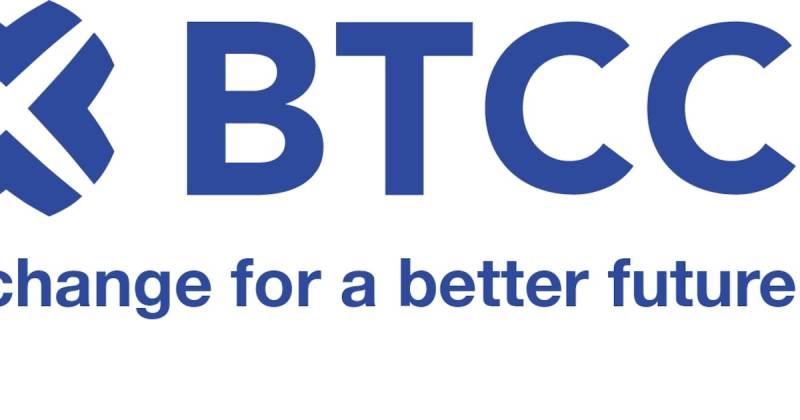 |
|
 |
|
 |
|
 |
|
 |
|
 |
|
 |
|
 |
|
 |
|
 |
|
 |
|
 |
|
 |
|
 |
|
 |
|
Cryptocurrency News Articles
Donald Trump’s Second Term as U.S. President Promises to Be Impactful for the ‘Crypto’ Sector
Nov 07, 2024 at 08:00 pm
Donald Trump’s second term as U.S. president promises to be impactful for the ‘crypto’ sector, thanks to the expected removal of regulatory guardrails

Donald Trump’s second term as U.S. president promises to herald impactful times for the ‘crypto’ sector, thanks to the expected removal of regulatory guardrails and legislators terrified of becoming the target of crypto campaign financing.
Shortly before Trump’s electoral college victory over his opponent Kamala Harris was called by Fox News late Tuesday night, the BTC token posted a new all-time fiat value high of just over US$75,350, eclipsing its previous record of $73,800 set this March. The token briefly topped $76,000 for the first time on Wednesday and remains comfortably above $75,000 at the time of writing.
Other prominent tokens were similarly elevated following Trump’s victory, buoyed by the thought of the first self-identified ‘crypto president’ entering the White House. And yet the WLFI token of Trump’s decentralized finance (DeFi) project, World Liberty Financial, didn’t get much of an election boost. The number of WLFI sold did finally top one billion after three weeks on the market (but that’s only 5% of the number they expected to sell on day one).
Trump’s party also retook the Senate and appears poised to retain control of the House of Representatives (counting remains ongoing). Coupled with a safe right-leaning majority on the U.S. Supreme Court and the ability to resume stacking federal courts with GOP stalwarts (and one or two lunatics), the sky’s the limit for what heights speculative digital assets might hit over the next four years.
In the short term, all eyes turn to the lame duck session of Congress that will get underway next week and extend through January until the newly elected members take their seats post-inauguration. Legislation governing stablecoin regulation—particularly so-called ‘payment stablecoins‘—is among the crypto-focused bills that could come up for debate and/or voting, along with the FIT21 market structure bill passed by the House this summer.
Even if a crypto bill fails to pass in the lame duck, the odds are good for an early vote in 2025, particularly since Sen. Sherrod Brown (D-OH) went down to defeat against challenger Bernie Moreno, a political neophyte who enjoyed a $40.1 million campaign financing boost from the pro-crypto Fairshake political action committee.
Brown is the current chair of the Senate Banking Committee and a noted crypto critic. With Brown out of the picture, Ranking Member Tim Scott (R-SC) will likely chair the committee going forward. Scott previously pledged to launch a digital asset subcommittee should the GOP prevail at the polls.
However, crypto operators may pressure politicians to hold off on passing any of the existing bills because they now believe they can achieve vastly more permissive legislation and even ‘lighter touch’ regulation in the new Congress.
In July, Trump promised to “immediately appoint a [BTC] and crypto presidential advisory council” if he regained the presidency. This council’s mandate would be “to design transparent regulatory guidance for the benefit of the entire industry, and they will get it done in 100 days.” Trump assured crypto fans, “From now on, the rules will be written by people who love your industry, not hate your industry.” So, odds are that the sector will be keen to wait until January before the sausage-making begins in earnest.
Tether breathing easySpeaking of someone who loves this industry, Trump transition team co-chair Howard Lutnick of Wall Street financial services firm Cantor Fitzgerald (NASDAQ: ZCFITX) is now sitting in the catbird seat. Lutnick, who allegedly custodies the U.S. Treasury bills allegedly owned by the issuers of the Tether (USDT) stablecoin, had already started lobbying legislators on crypto issues dear to Cantor’s heart long before Tuesday’s vote.
The question now becomes, does Lutnick have enough juice with Trump to convince him to convince legislators to craft new stablecoin legislation that doesn’t so explicitly elevate Tether’s rival Circle, the U.S.-based issuer of the USDC stablecoin, at Tether’s expense?
At the very least, Lutnick will almost certainly be able to convince Trump to pick someone to lead the Department of Justice who’s willing to (a) not seize Tether’s T-bills and (b) shelve the criminal indictments that are reportedly just waiting to be unsealed. To paraphrase Jesse Pinkman, Tether can’t keep getting away with it. And yet, it seems they will.
Gensler’s countdown to extinctionTrump’s other pro-crypto pledges include blocking any plans by the Federal Reserve to pursue the launch of a central bank digital currency (CBDC). Fed Chair Jerome Powell swears the Fed has no CBDC plans, but recent Treasury documents that suggested CBDCs should replace stablecoins are likely being put into the fireplace as we speak.
Disclaimer:info@kdj.com
The information provided is not trading advice. kdj.com does not assume any responsibility for any investments made based on the information provided in this article. Cryptocurrencies are highly volatile and it is highly recommended that you invest with caution after thorough research!
If you believe that the content used on this website infringes your copyright, please contact us immediately (info@kdj.com) and we will delete it promptly.
-

- "Cardano (ADA) Price Could Dip Below $0.60, Following Previous Market Cycle"
- Apr 09, 2025 at 05:10 am
- "Cowen goes on to say that ADA's technical indicators, such as its 20-week simple moving average (SMA) and 21-week exponential moving average (EMA), are lining up with the theory that the crypto asset could see another sizeable dip."
-

- BONK, the well-known meme coin, has risen over 35% in the last week, attracting meme coin investors in the market. So, what caused this rally?
- Apr 09, 2025 at 05:10 am
- The well-known meme coin, BONK, has risen over 35% in the last week, attracting meme coin investors in the market. So, what caused this rally?
-

-

-

-

-

-

-


























































